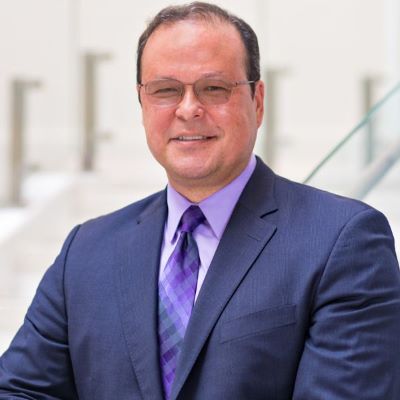Lost Trust: US intelligence community must make reforms, change culture to regain public faith

Mistrust follows a “witches brew of issues” where political impartiality has been questioned, said Harvey Rishikof, former legal counsel to the FBI’s deputy director, who served as moderator of “Lost Trust: Politics and Intelligence,” a webinar hosted by the American Bar Association. Image from Shutterstock.
To combat the American public’s loss of faith in the intelligence community, agencies must make reforms and create a culture of compliance and concern, according to panelists at “Lost Trust: Politics and Intelligence,” a webinar hosted by the American Bar Association Standing Committee on Law and National Security.
Mistrust follows a “witches brew of issues” where political impartiality has been questioned, said Harvey Rishikof, former legal counsel to the FBI’s deputy director, who served as moderator. Those instances range from the reports by special counsels John Durham and Robert Mueller examining former President Donald Trump’s interaction with Russia to the investigation of Hunter Biden’s laptop, added the chair of the Law and National Security Committee.
“The intelligence community, to include the FBI, has never been less respected across the board in the United States and more suspected of political bias in the way it administers its authorities,” said Stewart Baker, former National Security Agency general counsel and former Department of Homeland Security assistant secretary for policy.
 Mary McCord, former acting assistant attorney general for national security at the Department of Justice: “There’s no doubt that some individuals within the FBI might have political motives on both directions. The FBI is roundly criticized not just by Republicans right now, but also by Democrats.”
Mary McCord, former acting assistant attorney general for national security at the Department of Justice: “There’s no doubt that some individuals within the FBI might have political motives on both directions. The FBI is roundly criticized not just by Republicans right now, but also by Democrats.”
Mistakes were made
The mistrust results from two problems, said Mary McCord, former acting assistant attorney general for national security at the Department of Justice.
First, real mistakes were made by the intelligence community—in particular the FBI, according to McCord, who sees those mistakes as the fault of sloppiness—the result of not adequately understanding statutory and constitutional limitations.
Next, politicians capitalized on those mistakes for their own purposes by characterizing the actions as politically charged.
“There’s no doubt that some individuals within the FBI might have political motives on both directions,” McCord said. “The FBI is roundly criticized not just by Republicans right now, but also by Democrats.”
Baker, a member of the ABA Senior Lawyers Division and of counsel with Steptoe and Johnson in Washington, D.C., noted the influence of the former president: “I don’t say that the folks who support Trump are blameless in this, and Trump has certainly seized on this opportunity to build mistrust because it helps him.”
It is a “perfectly reasonable position that says [former President Donald Trump] broke a lot of norms,” Baker said. The intelligence community, however, including leaders such as Michael Hayden, former director of the CIA and National Security Agency, and James Comey, former director of the Federal Bureau of Investigation, broke their own agencies’ norms when they said they believed Trump was working for the Russians.
“The effort to say, ‘you can’t trust Trump because you should trust me,’ I think fell at the end of the day on deaf ears,” he added.
Alex Joel, now senior project director at American University’s Washington College of Law’s Tech, Law and Security Program, said he did not witness political bias or partisan motivations while he served as civil liberties protection officer at the Office of the Director of National Intelligence from 2005 until 2019.
“The idea that intelligence community authorities could be used for partisan political purposes was completely anathema to everything I felt that we stood for,” said Joel, a member of the ABA Science & Technology Law and the Government and Public Sector Lawyers Divisions.
He questioned the current rules regarding sensitive matters. “Are those enough? Do we need different institutions, different rules, different ways of thinking about this when there’s a domestic political issue that gets involved?” he asked. “Our idea for control is to elevate the authorization, which could lead to further distrust if the whole thought is that the people in power are using this for political purposes.”
 Alex Joel, now senior project director at American University’s Washington College of Law’s Tech, Law and Security Program: “The idea that intelligence community authorities could be used for partisan political purposes was completely anathema to everything I felt that we stood for.”
Alex Joel, now senior project director at American University’s Washington College of Law’s Tech, Law and Security Program: “The idea that intelligence community authorities could be used for partisan political purposes was completely anathema to everything I felt that we stood for.”
Good faith not enough
Though partisan bias hadn’t been a concern for Americans for about 50 years, “from now on we’re going the have to think about it all the time,” Baker said. “We’re going to have to accept that our good faith as government employees is not enough. And we have to recognize the risk that anything that gives an appearance of political bias is, in the long run, desperately fatal to the enterprise.”
To make change, a range of procedures must be tightened up and norms shattered, the panelists agreed. But those changes should be made carefully.
“Providing another detailed report, I’m not sure is going to move the needle,” Joel said. Joel noted that the Department of Justice and the FBI already have special procedures for sensitive investigative matters that should be defined in statute.
“We know already that Congress is considering codifying all the changes the FBI has made. And that’s good; they should do that. But I think they could also codify other provisions.”
Those include making sure that the Foreign Intelligence Surveillance Court is more directly involved as well as creating provisions on when to disseminate information to the White House and when to unmask the identities of US citizens, such as when a member of Congress’s name appears in an intelligence report, Joel added.
A quasi-independent review process to open investigations should be instituted, McCord said. Also, career officials—and not political appointees—should serve in positions to offer advice on protecting the institution, not a politician.
Consideration regarding which former officials can keep their security clearances must be given. The Hatch Act states that federal employees can participate in a political campaign—except those at Justice Department, or the FBI, or the CIA or the National Security Council, Baker said. “I would simply say, you take that restriction with you when you leave.”
McCord says the change must run beyond specific reforms.
“Those are just like Band-Aids, right?” McCord said. “What you have to do is actually create this culture change that we are going to abide by all of the rules, internal guidance, statutes, Constitution—and that’s just part of our culture. “



